The Dark Side of Social Media and Relationships
In today's digital age, social media has become an integral part of our daily lives. While it offers a platform for connection and communication, it also casts a long shadow over personal relationships. The constant scrolling through curated highlights of others' lives can lead to feelings of inadequacy and discontent. Have you ever found yourself comparing your relationship to the seemingly perfect couples you see online? This article delves into the negative impacts of social media on personal relationships, highlighting issues such as jealousy, miscommunication, and the erosion of intimacy, while also providing insights into healthier engagement with these digital platforms.
It's no secret that social media can amplify feelings of jealousy and insecurity. When we see friends or acquaintances posting about their romantic getaways, extravagant dinners, or affectionate moments, it's easy to feel like our own relationships are lacking. This constant comparison can breed dissatisfaction and conflict between partners. Suddenly, a simple post can trigger an avalanche of doubts, leading to arguments that stem not from real issues, but from the distorted mirror of social media. Couples may find themselves questioning their worth or the commitment of their partner, as they grapple with the unrealistic standards set by the digital world.
One of the most significant drawbacks of social media is the lack of non-verbal cues in online communication. Emoticons can only convey so much, and without facial expressions or tone of voice, messages can easily be misinterpreted. Have you ever received a text that you read in a completely different tone than intended? This misunderstanding can lead to unnecessary arguments and strain on relationships. For instance, a simple “fine” can be read as contentment or irritation, depending on the context. The absence of physical presence in conversations makes it challenging to resolve issues effectively, often prolonging disagreements.
In our fast-paced world, many couples prefer texting over face-to-face conversations, believing it to be more convenient. However, this preference can hinder emotional connection. When partners opt for texting, they miss out on the nuances of in-person interactions, which are essential for understanding and empathy. It’s like trying to enjoy a beautiful sunset through a foggy window; you see the colors, but the full experience is lost. The emotional distance created by digital communication can make it difficult for partners to resolve issues effectively, leading to a cycle of miscommunication and frustration.
Relying heavily on digital communication complicates conflict resolution. The tone and intent behind messages can get lost in translation, leading to prolonged disagreements. Imagine trying to explain a heartfelt concern through a text message; without the ability to convey emotion through body language or vocal inflection, the message may come across as harsh or dismissive. This can lead to misunderstandings that escalate conflicts rather than resolve them, making it essential for couples to prioritize face-to-face discussions, especially when tackling sensitive topics.
As couples increasingly turn to social media for communication, they may inadvertently erode the intimacy that strengthens their bond. The reliance on digital platforms can lead to a situation where online interactions take precedence over meaningful in-person connections. When partners spend more time engaging with their devices than with each other, the emotional distance can grow. It’s like living in the same house but feeling like roommates rather than lovers. To maintain intimacy, couples should strive to create moments of genuine connection, free from the distractions of social media.
Excessive use of social media can lead to addiction, diverting attention from partners and contributing to feelings of neglect and loneliness. When scrolling through feeds becomes a priority over spending quality time together, it can create a rift in the relationship. Partners may feel like they are competing for attention with the digital world, leading to resentment and frustration. To combat this, couples should establish boundaries around social media use, ensuring that their relationship remains a top priority.
In an era where sharing personal information is the norm, privacy concerns have become a pressing issue in relationships. Couples often find themselves navigating the tricky waters of what to share online and what to keep private. Oversharing can lead to trust issues, as partners may feel uncomfortable with the level of personal information being disclosed to the public. This discomfort can create tension and conflict, as each partner may have different views on privacy and respect.
Establishing boundaries regarding what to share online can be challenging for couples. It's essential to have open discussions about comfort levels and privacy expectations. When one partner feels that their boundaries are being violated, it can lead to discomfort and disagreements. Setting clear guidelines on social media use can help mitigate these issues and foster a sense of respect and understanding within the relationship.
The influence of friends and followers on social media can create pressure on couples, often leading to conflicts based on external opinions rather than personal values. When couples feel the need to curate their relationship for an audience, it can distort their priorities and values. Instead of focusing on what makes them happy, they may find themselves trying to meet the expectations of others. This can lead to dissatisfaction and strain, as couples need to remember that their relationship is theirs alone, not a performance for social media.
- How can social media impact my relationship negatively? Social media can lead to jealousy, miscommunication, and a loss of intimacy, which can strain relationships.
- What can I do to improve communication with my partner? Prioritize face-to-face conversations and set boundaries around social media use to enhance emotional connection.
- Is it healthy to share everything about my relationship online? It's essential to establish boundaries and discuss comfort levels with your partner to maintain privacy and respect.
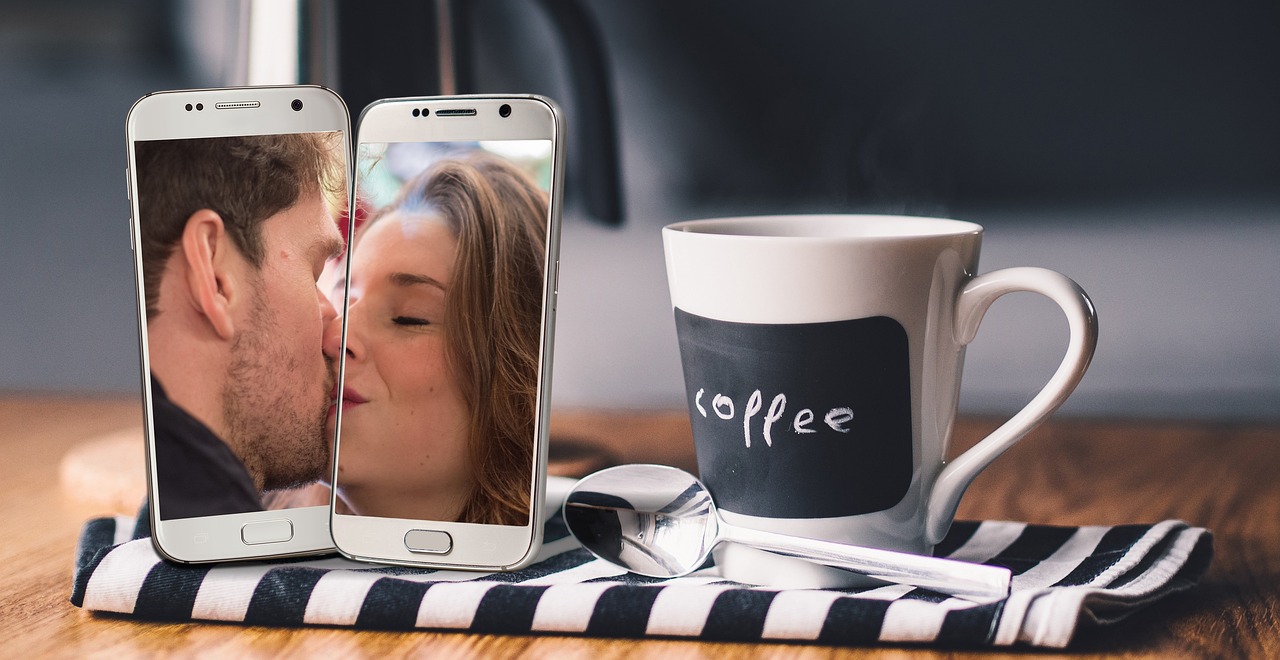
Jealousy and Insecurity
Social media has a way of creeping into our lives, often unnoticed, like a shadow lurking in the background. It can amplify feelings of jealousy and insecurity in relationships, turning what should be a loving bond into a battleground of comparisons and doubts. Have you ever found yourself scrolling through your partner’s social media, only to feel a twinge of envy when you see them interacting with an attractive friend? That feeling is more common than you think!
When we constantly compare ourselves to the curated lives of others, it’s easy to feel that our own relationships don’t measure up. The highlight reels of social media can distort reality, leading us to believe that everyone else has a perfect relationship, filled with romantic dinners and spontaneous adventures. In contrast, our own relationship may feel mundane or lacking. This perception can lead to feelings of dissatisfaction and conflict between partners.
Moreover, social media often encourages a culture of competition, where likes and comments become the currency of validation. When one partner receives more attention online, it can spark feelings of jealousy in the other. This isn't just about the likes; it's about the emotional connection that seems to be shared with others instead of with each other. The irony is that while social media connects us with many, it can simultaneously create a rift between two people who should be each other's primary support system.
To illustrate this point, let’s consider a scenario: imagine a couple who frequently posts their outings on social media. One day, one partner posts a picture with a friend, and the other partner sees it. Instead of feeling happy for their partner, they might feel a sense of insecurity creeping in. Questions like “Why didn’t I get invited?” or “Are they closer to that person than they are to me?” can arise, leading to unnecessary arguments.
It’s crucial for couples to recognize these feelings for what they are—normal reactions to the pressures of social media. Open communication about these insecurities can help mitigate the negative effects. Discussing boundaries around social media use and agreeing on what is acceptable to share can foster a sense of trust and security within the relationship.
In the end, the key to overcoming jealousy and insecurity lies not in avoiding social media altogether, but in using it mindfully. Couples should strive to create a safe space where they can express their feelings without fear of judgment. By doing so, they can transform jealousy into understanding and insecurity into reassurance, ultimately strengthening their bond.
- How can I address feelings of jealousy in my relationship? Start by having an open conversation with your partner about your feelings. Expressing your emotions can help both of you understand each other better.
- Is it healthy to share everything on social media? Not necessarily. It's important to establish boundaries regarding what you share online. Consider what makes you both comfortable.
- Can social media ever be a positive influence on relationships? Absolutely! When used mindfully, social media can help couples stay connected, share experiences, and celebrate milestones together.
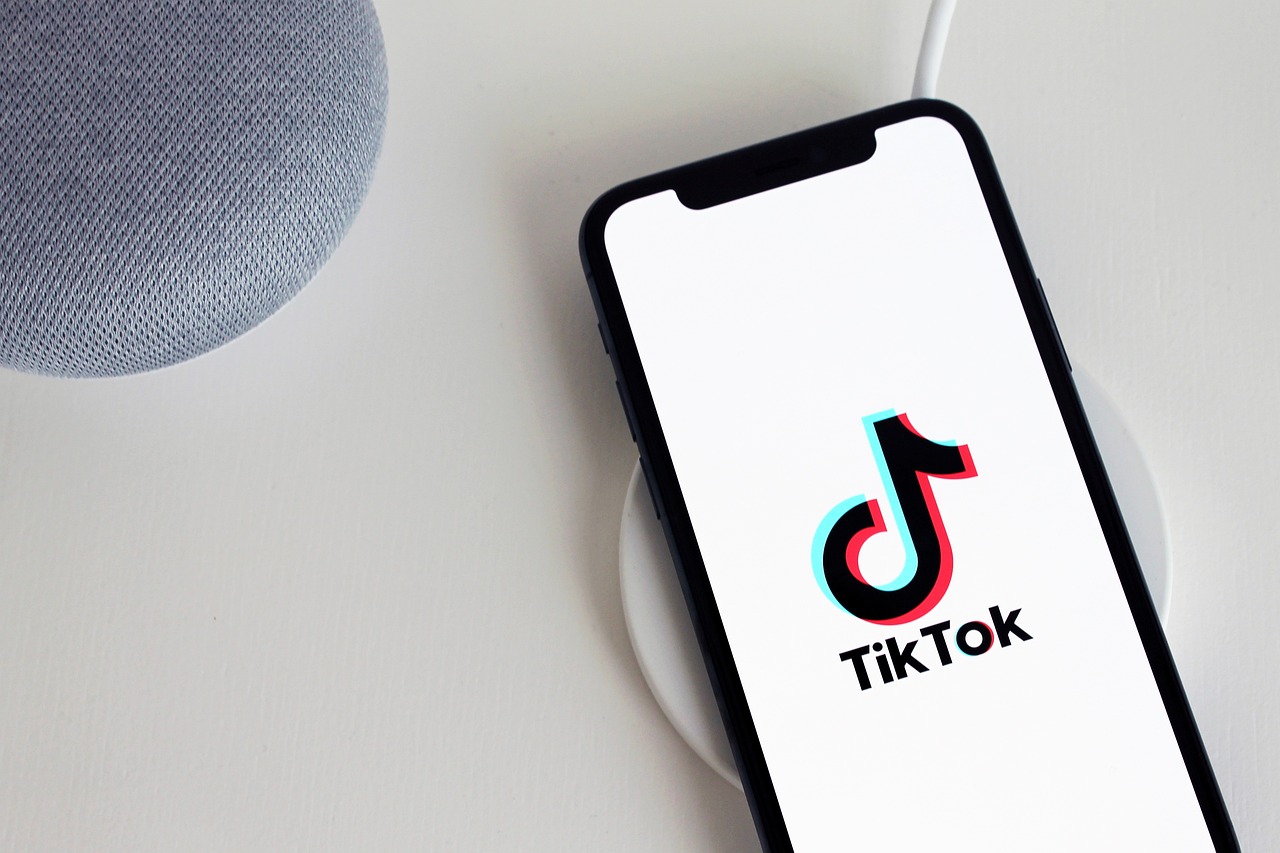
Miscommunication and Misinterpretation
In the digital age, the way we communicate has drastically changed, and not always for the better. One of the major pitfalls of social media is the lack of non-verbal cues, which are essential for effective communication. When we communicate face-to-face, we rely on body language, facial expressions, and tone of voice to convey our feelings and intentions. However, in the realm of social media, these cues are often lost. This absence can lead to a significant increase in misunderstandings and misinterpretations. For instance, a simple text message can be read in multiple ways depending on the reader's mood or past experiences, which can spark unnecessary arguments.
Consider this: when you receive a message that simply says, "Sure," how do you interpret it? Is it a genuine agreement, or is there a hint of sarcasm? Without the accompanying facial expression or tone, it's nearly impossible to know for sure. This ambiguity can create a breeding ground for conflict, as partners may jump to conclusions based on their interpretations rather than seeking clarification. The result? Increased tension and frustration that could have been easily avoided with a face-to-face conversation.
Many couples today prefer texting over having a heart-to-heart conversation. While texting is convenient, it can also create barriers to emotional connection. When partners rely on their phones to communicate, they may miss out on the opportunity to engage in deeper discussions that foster intimacy. Think of it this way: texting is like reading the first chapter of a book and assuming you know the whole story. You might get the gist, but you miss the nuances that make the relationship rich and fulfilling.
When conflicts arise, relying on digital communication can complicate the resolution process. The tone of a message can easily be misread, leading to prolonged disagreements. For example, if one partner sends a message that seems curt or dismissive, the other might perceive it as a lack of interest or care, when in reality, the sender might just be busy or preoccupied. This miscommunication can escalate tensions, making it harder for couples to resolve their issues effectively. It's crucial for partners to recognize the limitations of digital communication and prioritize face-to-face interactions, especially when addressing sensitive topics.
Moreover, the reliance on social media for communication can erode intimacy in relationships. When couples choose to engage in online interactions over meaningful in-person connections, they risk losing the emotional depth that comes from shared experiences and physical presence. Imagine trying to build a house with only half the tools; it just won’t stand strong. Similarly, relationships that lack personal interaction may struggle to withstand the pressures of life. Couples should strive to balance their online and offline interactions, ensuring that they nurture their relationship in all its dimensions.
In conclusion, while social media offers the convenience of instant communication, it also poses significant risks to our relationships. Miscommunication and misinterpretation can lead to misunderstandings that create unnecessary conflict. It's essential for couples to be aware of these pitfalls and make a conscious effort to communicate effectively, using both digital tools and face-to-face interactions to strengthen their bond.
- How can I improve communication with my partner?
Focus on having regular face-to-face conversations, and be mindful of your tone and body language when communicating. - What are the signs of miscommunication in a relationship?
Look for increased arguments, feelings of frustration, or misunderstandings that seem to arise frequently. - How can we set boundaries for social media use in our relationship?
Discuss and agree on what is appropriate to share online and how much time you both want to spend on social media.

Texting vs. Face-to-Face Communication
In today’s fast-paced world, texting has become the go-to method for communication, especially among couples. It’s quick, convenient, and allows us to stay connected without the need for face-to-face interaction. However, while texting has its perks, it also comes with a set of challenges that can hinder genuine emotional connections. Think of texting as a fast-food meal: it might satisfy your immediate hunger, but it doesn’t provide the same nourishment that a home-cooked meal does. When we rely solely on texts to communicate, we miss out on the richness of non-verbal cues—those subtle body language signals, eye contact, and vocal tones that convey so much meaning.
Consider this: when you text, you lose the ability to read your partner's facial expressions or hear the inflections in their voice. This lack of context can lead to misunderstandings. For instance, a simple message like “I’m fine” could be interpreted in various ways, depending on the tone and context. Are they really fine, or are they just saying that to avoid conflict? Without the nuances of face-to-face communication, it’s easy to misinterpret intentions and feelings, which can escalate into unnecessary arguments.
Moreover, texting can create a false sense of intimacy. While it may feel like you’re connected because you’re constantly exchanging messages, the reality is that these interactions often lack depth. A heartfelt conversation over coffee allows for emotional sharing and vulnerability that a text simply cannot replicate. Couples may find themselves discussing important issues via text, which can complicate conflict resolution. When faced with a disagreement, a face-to-face conversation allows both partners to express themselves fully and understand each other better. In contrast, texting can lead to prolonged misunderstandings, as messages can be misread and emotions can spiral out of control.
To illustrate the differences, here’s a quick comparison:
| Aspect | Texting | Face-to-Face Communication |
|---|---|---|
| Non-Verbal Cues | No | Yes |
| Emotional Depth | Limited | High |
| Conflict Resolution | Complicated | Effective |
| Convenience | High | Lower |
While there’s nothing wrong with texting—it’s a great tool for quick check-ins or sharing a funny meme—couples should strive to balance it with face-to-face interactions. Setting aside time for regular in-person conversations can help strengthen relationships and foster deeper connections. So, next time you find yourself reaching for your phone to text your partner, consider whether a face-to-face chat might be more beneficial. After all, nothing beats the warmth of a smile or the comfort of a shared laugh in person.
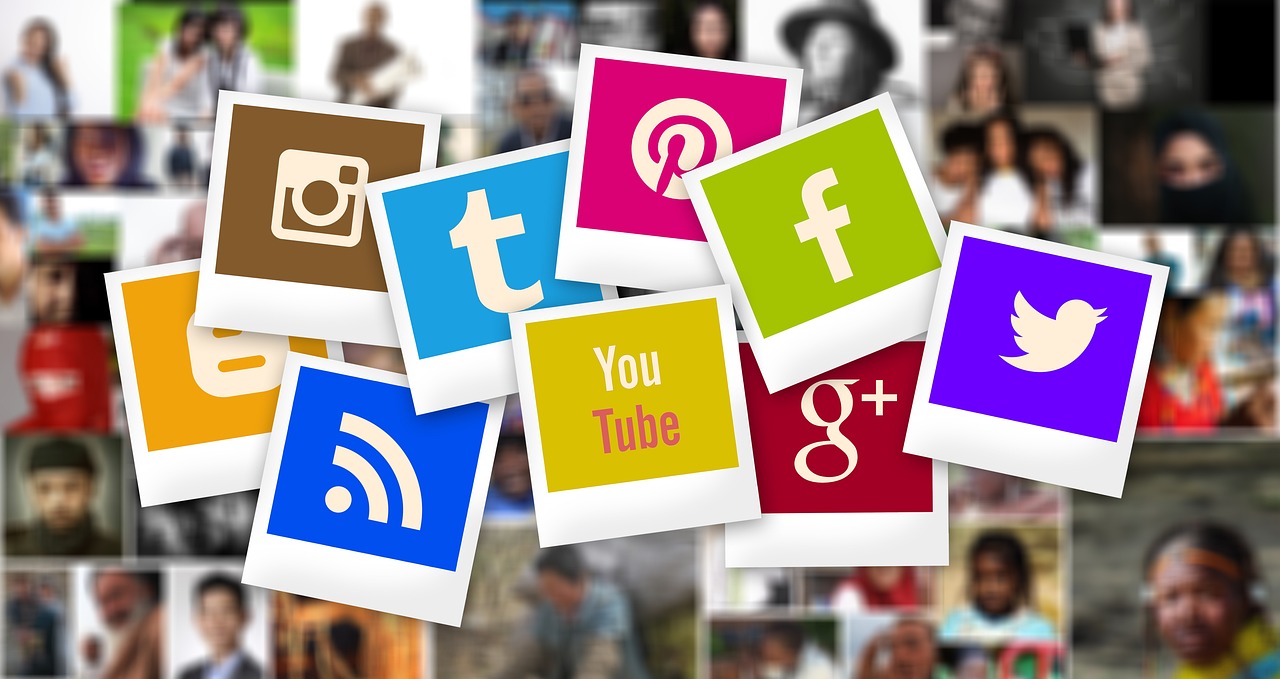
Impact on Conflict Resolution
In today's digital age, the way we communicate has drastically changed. While social media offers a convenient platform for interaction, it can also create significant barriers when it comes to resolving conflicts. One of the most pressing issues is that relying on text-based communication often strips away the essential non-verbal cues that are crucial for understanding tone and intent. Imagine trying to decipher a friend's feelings through a text message devoid of facial expressions or body language—it's like trying to read a book with half the pages missing!
When partners engage in conflict via social media or texting, misunderstandings can easily escalate. For example, a simple message like "I’m fine" can be interpreted in numerous ways depending on the reader's mood or context. This ambiguity can lead to unnecessary arguments, as each partner may project their insecurities or assumptions onto the conversation. The result? A minor disagreement spirals into a full-blown feud, often over something that could have been resolved with a face-to-face conversation.
Moreover, the asynchronous nature of digital communication means that responses can be delayed, leaving room for overthinking and misinterpretation. This gap can fuel the fire of conflict, as one partner may feel ignored while waiting for a reply, leading to feelings of resentment. In contrast, when partners communicate in person, they can address issues in real-time, allowing for immediate feedback and clarification. This dynamic fosters an environment where both parties can express their thoughts and emotions more openly, ultimately leading to healthier resolutions.
To illustrate how digital communication can complicate conflict resolution, consider the following scenarios:
| Scenario | Digital Communication Outcome | Face-to-Face Communication Outcome |
|---|---|---|
| Misunderstanding a text message | Escalation of conflict due to misinterpretation | Clarification and immediate resolution |
| Delayed responses | Increased anxiety and overthinking | Real-time feedback and emotional connection |
| Loss of emotional context | Feelings of isolation and frustration | Shared emotional experiences and empathy |
Ultimately, while social media can serve as a tool for connection, it often complicates the delicate process of conflict resolution. To foster healthier relationships, couples should prioritize face-to-face conversations when addressing sensitive issues. This approach not only enhances understanding but also strengthens emotional bonds, allowing partners to navigate conflicts with empathy and clarity.
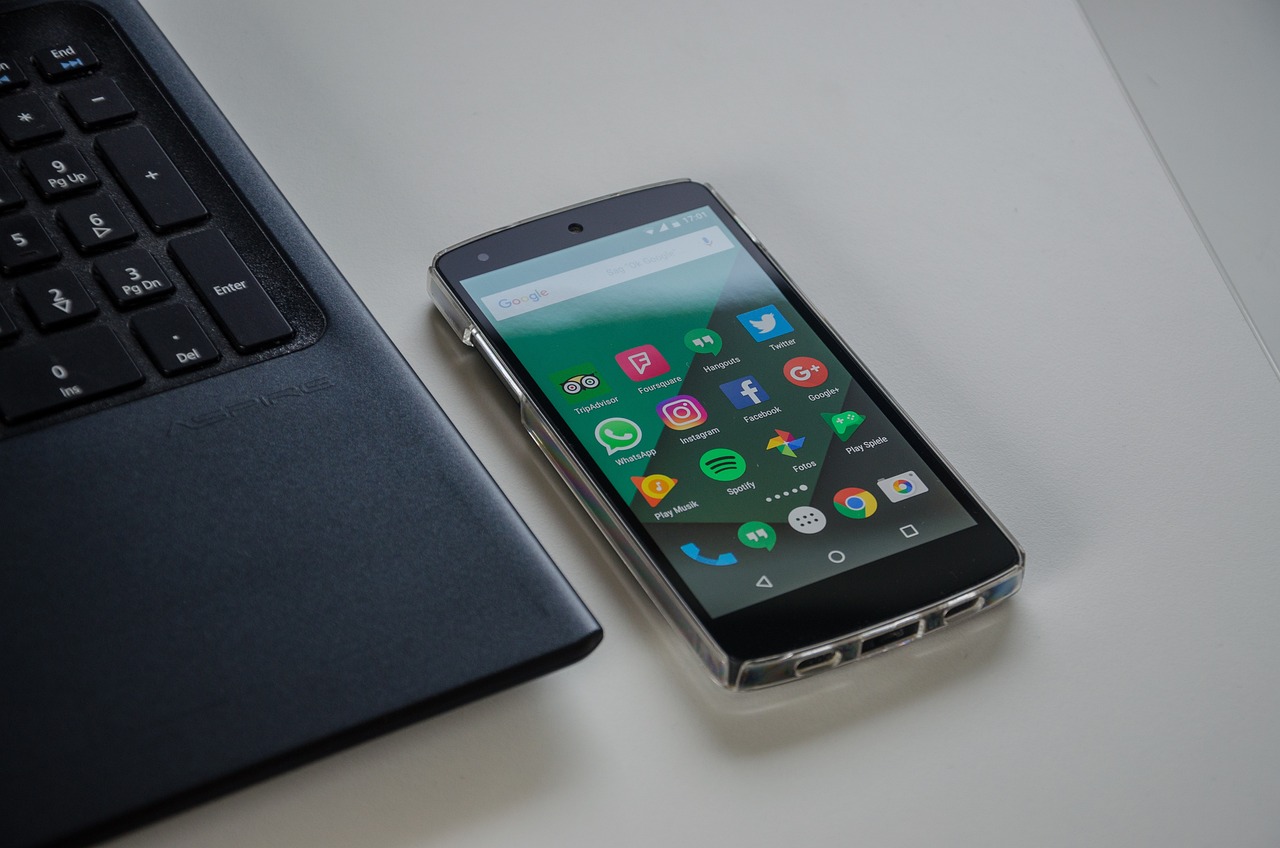
Loss of Intimacy
The rise of social media has undoubtedly transformed the way we communicate, but it has also contributed to a significant in personal relationships. Imagine sitting next to your partner, both of you scrolling through your phones, sharing the same space yet feeling worlds apart. This scenario is all too common in today's digital age. When couples rely heavily on social media for communication, they often neglect the meaningful, face-to-face interactions that foster emotional connections. Instead of engaging in deep conversations, partners may find themselves exchanging quick texts or emojis, which can feel superficial and detached.
This shift in communication style not only affects how partners relate to each other but also diminishes the quality of their emotional bond. Intimacy is built on shared experiences, vulnerability, and understanding—elements that are often lost in the noise of social media. When partners prioritize online interactions over in-person conversations, they miss out on the nuances of body language, tone of voice, and the warmth of physical presence. These elements play a crucial role in deepening connections and fostering trust.
Furthermore, the constant availability of social media can create a false sense of connection. Couples may feel that they are staying in touch through likes, comments, and direct messages, but these interactions often lack the depth required for true intimacy. Over time, this can lead to feelings of loneliness and disconnection, even when partners are physically together. It's a paradox that many couples face today: being connected online yet feeling emotionally distant.
To combat this loss of intimacy, couples should consciously carve out time for each other, free from digital distractions. Here are some strategies to help restore emotional closeness:
- Designate Tech-Free Zones: Create spaces in your home where phones and devices are not allowed, encouraging face-to-face conversations.
- Schedule Regular Date Nights: Prioritize quality time together, whether it's a dinner date or a simple walk in the park.
- Engage in Shared Activities: Find hobbies or interests you both enjoy, fostering teamwork and connection.
By taking these steps, couples can begin to rebuild the intimacy that social media often undermines. It’s essential to remember that while technology can enhance communication, it should never replace the authentic connections that come from genuine interactions. As we navigate the complexities of modern relationships, let’s strive to balance our digital lives with the real-world connections that truly matter.
- How can social media affect my relationship? Social media can lead to jealousy, miscommunication, and a decrease in intimacy between partners.
- What are some signs of social media addiction in relationships? Signs include spending excessive time online, neglecting in-person interactions, and feeling anxious when not connected.
- How can couples maintain intimacy despite social media? Couples can set boundaries around tech use, prioritize face-to-face communication, and engage in shared activities.
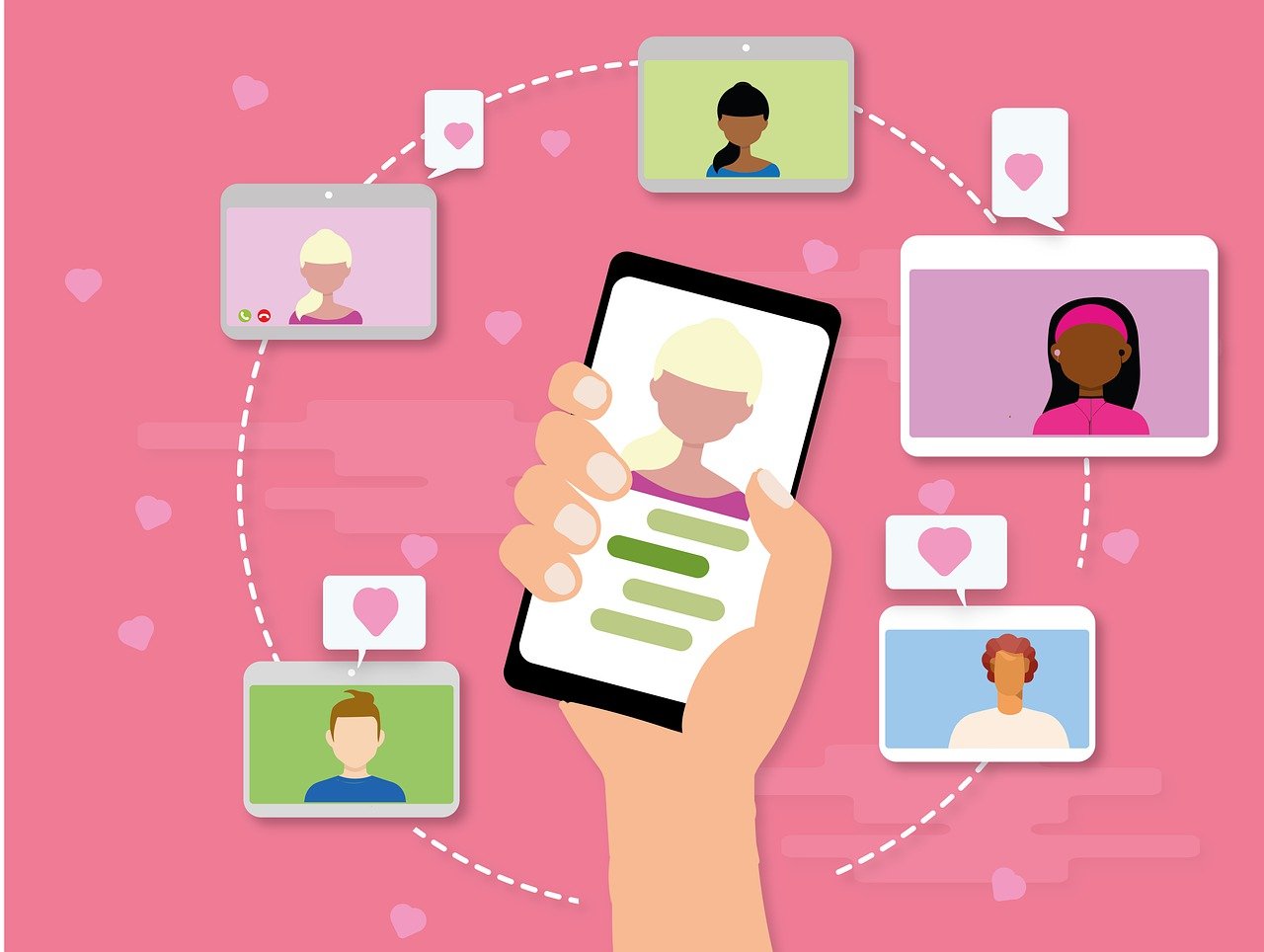
Social Media Addiction
This article explores the negative impacts of social media on personal relationships, including issues like jealousy, miscommunication, and the erosion of intimacy, while offering insights into healthier engagement with digital platforms.
Social media can amplify feelings of jealousy and insecurity in relationships, as constant comparisons to others can lead to dissatisfaction and conflict between partners.
The lack of non-verbal cues in online communication often leads to misunderstandings and misinterpretations, causing unnecessary arguments and strain on relationships.
The preference for texting over face-to-face conversations can hinder emotional connection, making it difficult for partners to resolve issues effectively.
Relying on digital communication can complicate conflict resolution, as tone and intent may be lost in translation, leading to prolonged disagreements.
The reliance on social media for communication can erode intimacy, as couples may prioritize online interactions over meaningful in-person connections.
In today's fast-paced digital world, has become a prevalent issue that can significantly affect personal relationships. Imagine a scenario where a partner is more engrossed in their phone than in a conversation with you. This situation isn't just a minor annoyance; it can create a chasm of emotional distance. When one partner is constantly scrolling through feeds, liking posts, and engaging with others online, it can lead to feelings of neglect and loneliness for the other partner.
Excessive use of social media often diverts attention away from real-life interactions. It’s like being in a crowded room yet feeling utterly alone. The more time spent online, the less time is available for genuine connection. Studies have shown that couples who are addicted to social media tend to report lower relationship satisfaction. This could stem from a few reasons:
- The constant distraction of notifications and updates.
- Comparison to seemingly perfect lives portrayed by others.
- Reduced quality time spent together, leading to a lack of shared experiences.
Moreover, social media addiction can create a cycle of validation seeking. When individuals rely on likes and comments for self-esteem, they may prioritize online interactions over their partner's needs. This behavior can lead to resentment, as one partner may feel undervalued or ignored. It's crucial to recognize the signs of social media addiction, which may include:
| Signs of Social Media Addiction | Description |
|---|---|
| Constant Checking | Feeling the need to check social media frequently, even during conversations. |
| Neglecting Responsibilities | Prioritizing social media over work, chores, or time with loved ones. |
| Emotional Distress | Feeling anxious or upset when unable to access social media. |
| Withdrawal Symptoms | Experiencing irritability or restlessness when not online. |
To combat social media addiction, it’s essential to establish boundaries. Setting specific times to engage with social media can help couples reconnect and prioritize their relationship. Consider scheduling regular "phone-free" dates where both partners can focus on one another without the interference of digital distractions. This practice not only fosters intimacy but also reinforces the bond between partners.
Sharing personal information on social media can lead to privacy breaches, resulting in trust issues and potential conflicts within relationships.
Couples often struggle with boundaries regarding what to share online, leading to discomfort and disagreements about privacy and respect.
The influence of friends and followers on social media can create pressure on couples, leading to conflicts based on external opinions rather than personal values.
Q: How can I tell if I'm addicted to social media?
A: If you find yourself constantly checking your phone, feeling anxious when not online, or neglecting responsibilities and relationships, you may be experiencing social media addiction.
Q: What are some strategies to reduce social media use?
A: Consider setting specific times for social media use, turning off notifications, or engaging in offline activities that promote connection with your partner.
Q: How does social media impact relationship satisfaction?
A: Excessive social media use can lead to feelings of neglect, jealousy, and emotional distance, which may decrease overall relationship satisfaction.
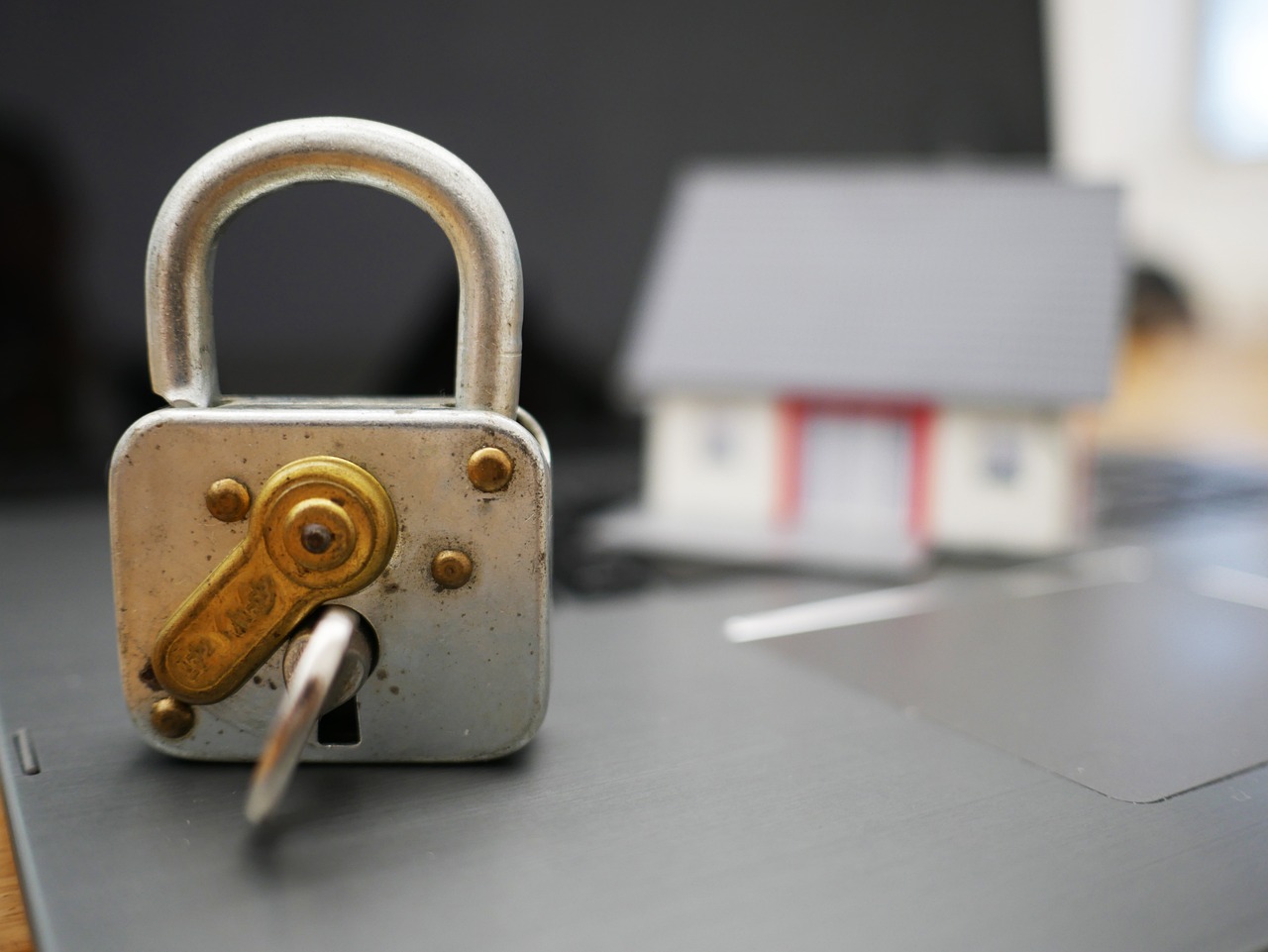
Privacy Concerns
In the digital age, where sharing personal moments has become a norm, have taken center stage in the realm of relationships. With just a click, couples can broadcast their lives to the world, but this openness can come at a cost. Have you ever considered how much is too much when it comes to sharing? The line between personal and public can become blurred, leading to potential trust issues and conflicts. When one partner feels that their privacy is being compromised, it can create a rift that may be hard to mend.
One of the biggest challenges couples face is the dilemma of oversharing. What might seem harmless to one person can feel invasive to another. For instance, posting a picture from a romantic dinner might be sweet, but if one partner didn’t want it shared, it can lead to feelings of discomfort. Establishing boundaries is crucial, and it's essential for both partners to engage in open discussions about what they are comfortable sharing online. Here’s a simple table to illustrate common oversharing scenarios:
| Scenario | Potential Reaction |
|---|---|
| Posting personal arguments | Feeling exposed and vulnerable |
| Sharing intimate moments | Feeling uncomfortable or disrespected |
| Tagging without consent | Feeling disregarded or unvalued |
Moreover, the influence of external opinions can complicate matters further. Social media platforms are rife with the opinions of friends, followers, and even strangers. This can lead to pressure on couples to portray a perfect relationship, which is often far from reality. When relationships are built on the opinions of others rather than mutual understanding and respect, it can lead to conflicts that stem from external validation rather than personal values. Couples may find themselves in disagreements over how to present their relationship online, leading to a cycle of stress and resentment.
As we navigate the complexities of sharing our lives online, it’s vital to prioritize trust and communication. Regularly checking in with each other about comfort levels regarding social media can foster a stronger bond. By establishing clear boundaries and understanding each other’s perspectives, couples can enjoy the benefits of social media while minimizing the risks associated with privacy concerns. Remember, it’s not just about what you share, but also about how you make each other feel in the process.
- What should I do if my partner feels uncomfortable with my social media posts?
Open the lines of communication. Discuss their concerns and try to understand their perspective. Adjust your sharing habits accordingly.
- How can we set boundaries for what to share online?
Have a candid conversation about your comfort levels and establish mutual agreements on what is appropriate to share.
- Is it okay to share personal moments without my partner's consent?
No, it's crucial to respect each other's privacy and seek consent before sharing anything personal online.

Oversharing and Boundaries
In the age of social media, the line between sharing and oversharing can become incredibly blurred. For couples, this can lead to significant tension and misunderstandings. When one partner feels comfortable posting intimate details about their relationship online, the other might feel exposed or even violated. It's as if one person is broadcasting their private life while the other is left feeling like a spectator in their own love story. This disparity can create a rift, as the partner who values privacy may feel that their boundaries are being disregarded.
Establishing clear boundaries around what is acceptable to share online is crucial for maintaining a healthy relationship. Communication is key—both partners should openly discuss their comfort levels regarding social media sharing. This conversation can help set the stage for mutual respect and understanding. For instance, one partner might be perfectly fine with sharing vacation photos, while the other might prefer to keep personal achievements and milestones private. These differences can lead to conflict if not addressed early on.
Moreover, the act of oversharing can invite unwanted opinions and scrutiny from friends and followers, which can further complicate the relationship. Imagine posting a heartfelt status about a rough patch you’re going through, only to have friends weigh in with their unsolicited advice or judgments. This external pressure can create a sense of isolation between partners, as they may feel the need to put on a brave face for their online audience, rather than addressing the issues at hand privately.
To navigate the tricky waters of oversharing, couples can consider the following strategies:
- Set Clear Guidelines: Discuss and agree on what types of content are acceptable to share on social media.
- Check In Regularly: Make it a habit to ask each other if they’re comfortable with what’s being posted, especially when it involves sensitive topics.
- Respect Privacy: Always prioritize your partner’s feelings and privacy over the desire to share personal experiences with the world.
By being mindful of what is shared online and respecting each other's boundaries, couples can foster a healthier relationship dynamic. It’s all about finding that sweet spot where both partners feel valued and respected, ensuring that social media enhances rather than detracts from their connection. After all, social media should serve as a tool for connection, not a source of conflict.
Q: What is considered oversharing on social media?
A: Oversharing typically involves disclosing personal or intimate details about your relationship that may make one partner uncomfortable or that could invite unwanted scrutiny from others.
Q: How can couples establish boundaries regarding social media?
A: Couples can establish boundaries by having open discussions about their comfort levels with sharing personal information online, agreeing on what is acceptable to post, and regularly checking in with each other.
Q: What are the consequences of oversharing on relationships?
A: Oversharing can lead to feelings of discomfort, anxiety, and mistrust between partners, as well as invite external opinions that may complicate their relationship dynamics.

Influence of External Opinions
The influence of external opinions in the realm of social media can be a double-edged sword for couples. On one hand, it can provide a sense of community and support; on the other, it can create unnecessary pressure and conflict. Imagine scrolling through your feed and seeing a friend’s extravagant vacation photos or a couple’s perfect anniversary celebration. It’s easy to fall into the trap of comparison, isn’t it? This constant exposure to curated highlights can lead to unrealistic expectations about what a relationship should look like.
When couples start measuring their own happiness against the seemingly flawless lives of others, it can foster feelings of inadequacy. Instead of focusing on their unique bond, partners may find themselves questioning their relationship’s value. This is where the influence of external opinions can become toxic. Friends and followers might unintentionally weigh in on relationship decisions, leading to conflicts based on societal norms rather than personal values. For example, if a couple decides to take a break from social media, they may face backlash from friends who don't understand their choice, causing tension and misunderstandings.
Moreover, the feedback loop created by social media can amplify issues of jealousy and insecurity. If one partner receives a lot of attention on their posts, the other might feel overshadowed or neglected. This dynamic can lead to arguments that stem from external validation rather than genuine relationship concerns. To illustrate this point, consider the following table showcasing common scenarios where external opinions can impact relationships:
| Scenario | Potential Impact |
|---|---|
| Posting a picture with friends | Jealousy if one partner feels excluded |
| Receiving compliments on social media | Insecurity about self-worth |
| Friends commenting on relationship choices | Pressure to conform to others' expectations |
To navigate this complex landscape, couples need to establish clear boundaries regarding social media use. Open communication about what is comfortable to share and what should remain private can help mitigate the negative effects of external opinions. It’s essential for partners to support each other and prioritize their relationship over the perceptions of others. After all, the opinions of friends and followers should never outweigh the feelings and experiences shared between partners.
- How can couples manage external opinions on social media?
Establishing open communication about social media boundaries and prioritizing each other's feelings can help couples navigate external opinions effectively.
- What are some signs that social media is negatively impacting a relationship?
Signs include increased jealousy, constant comparisons, and frequent arguments stemming from online interactions.
- Is it beneficial to take breaks from social media as a couple?
Yes, taking breaks can help couples reconnect with each other without the distractions and pressures of social media, fostering a deeper emotional bond.
Frequently Asked Questions
- How does social media contribute to jealousy in relationships?
Social media can create a breeding ground for jealousy as individuals often compare their lives to the curated highlights of others. This constant exposure to seemingly perfect relationships can lead to feelings of inadequacy and insecurity, causing tension between partners.
- What are the common miscommunications that occur online?
Miscommunication often arises from the absence of non-verbal cues in digital interactions. A sarcastic comment might be taken seriously, or a simple text could be misinterpreted, leading to unnecessary arguments and emotional strain.
- Is texting really worse than face-to-face communication?
Absolutely! While texting is convenient, it lacks the emotional depth that face-to-face conversations provide. Without body language and tone, messages can easily be misunderstood, complicating conflict resolution and emotional connection.
- How can social media addiction affect relationships?
Excessive social media use can lead to neglect in relationships. When partners spend more time scrolling through feeds than engaging with each other, feelings of loneliness and disconnect can arise, creating a rift in intimacy.
- What privacy concerns should couples be aware of?
Sharing personal information online can lead to privacy breaches, which may result in trust issues. Couples need to discuss boundaries regarding what’s appropriate to share to maintain respect and comfort in their relationship.
- How does oversharing impact relationships?
Oversharing can lead to discomfort and disagreements, especially if one partner feels their privacy is being violated. Establishing clear boundaries about what to share online is essential for mutual respect and understanding.
- Can external opinions on social media influence relationship dynamics?
Yes, the opinions of friends and followers can create undue pressure on couples. When external views overshadow personal values, it can lead to conflicts and misunderstandings that strain the relationship.



















